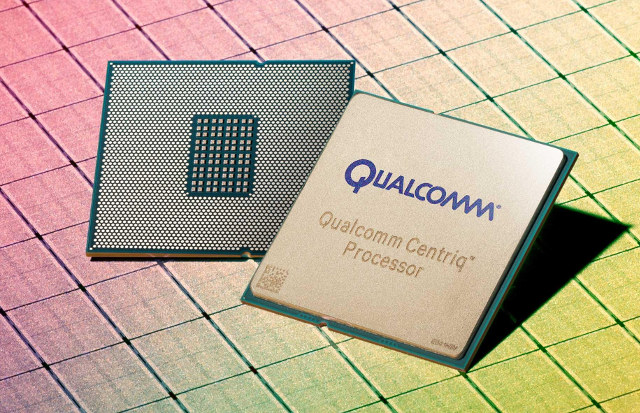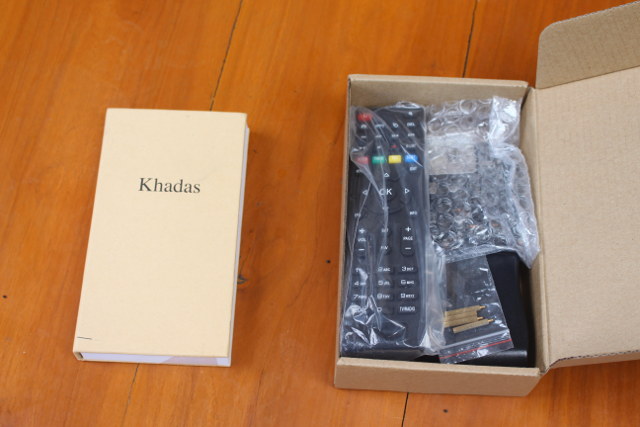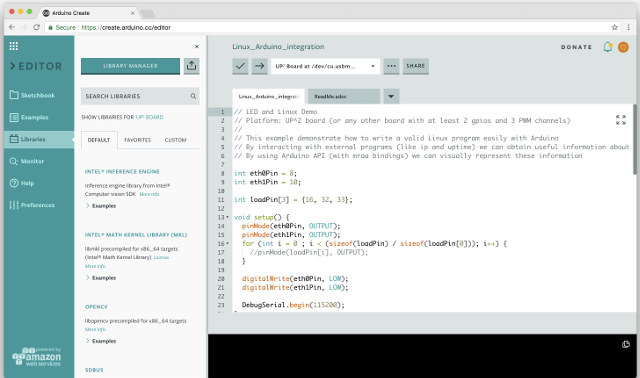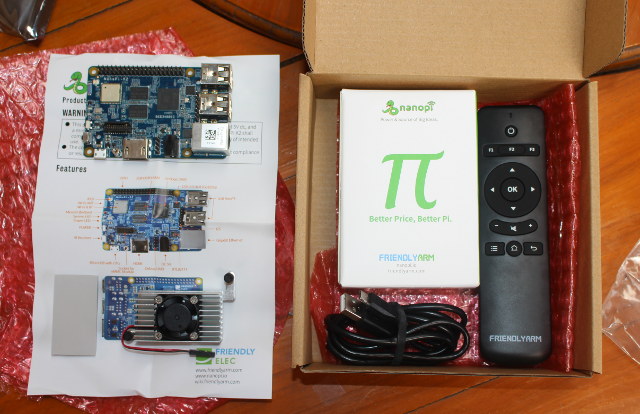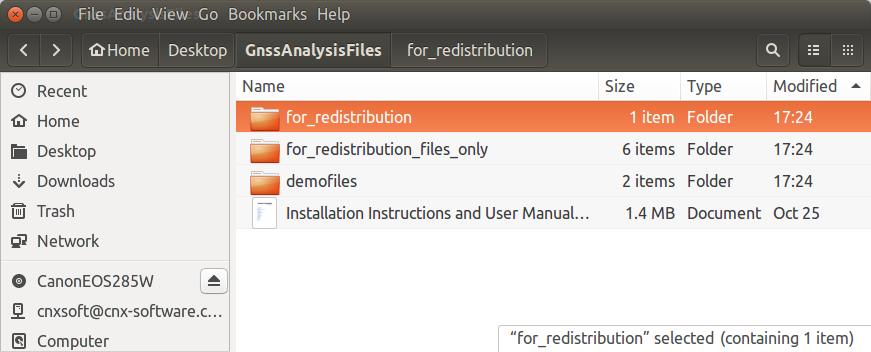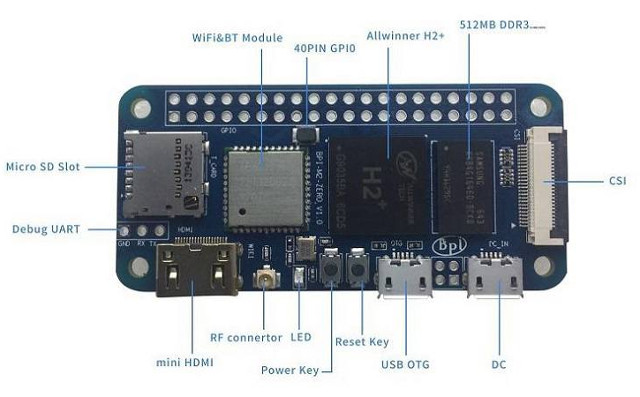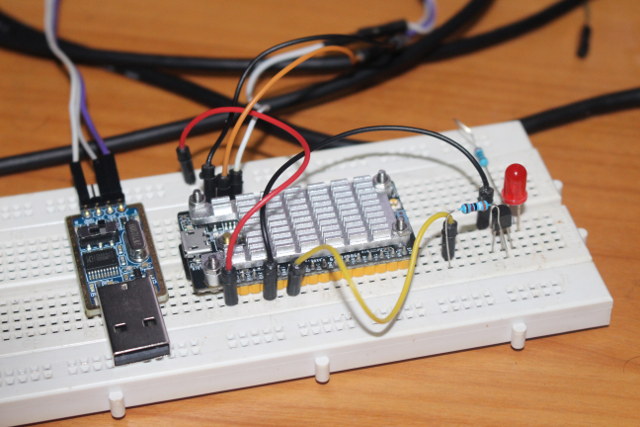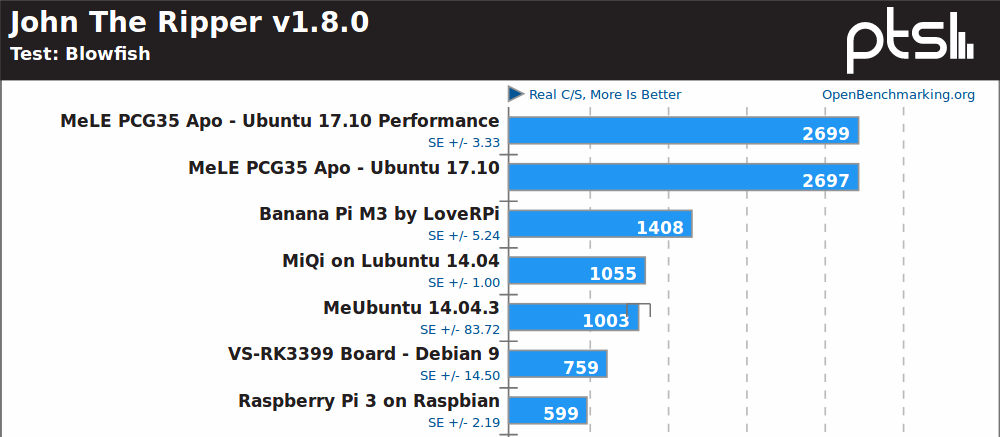Qualcomm Centriq 2400 ARM Server-on-Chip has been four years in the making. The company announced sampling in Q4 2016 using 10nm FinFET process technology with the SoC featuring up to 48 Qualcomm Falkor ARMv8 CPU cores optimized for datacenter workloads. More recently, Qualcomm provided a few more details about the Falkor core, fully customized with a 64-bit only micro-architecture based on ARMv8 / Aarch64. Finally, here it is as the SoC formally launched with the company announcing commercial shipments of Centriq 2400 SoCs. Qualcom Centriq 2400 key features and specifications: CPU – Up to 48 physical ARMv8 compliant 64-bit only Falkor cores @ 2.2 GHz (base frequency) / 2.6 GHz (peak frequency) Cache – 64 KB L1 instructions cache with 24 KB single-cycle L0 cache, 512 KB L2 cache per duplex; 60 MB unified L3 cache; Cache QoS Memory – 6 channels of DDR4 2667 MT/s for up to 768 […]
Khadas VIM2 Board Review – Part 1: Unboxing and Dual Tuner Board
Khadas VIM2 board is the successor of Khadas VIM board, replacing Amlogic S905X by a slightly more powerful Amlogic S912, but that’s the connectivity features that really makes it stand apart from the first version with Gigabit Ethernet, 802.11ac WiFi and Bluetooth 4.2. It also exposes a few extra I/Os via pogopins. and among the three variants, two comes with 3GB RAM, and up to 64 GB storage. The company (Shenzhen Wesion) sent me one of the boards, together with various accessories, and I’ll start the review of the board by checking out the hardware and accessories, before testing the board further in another post. I received two packages: one book-like with Khadas marked on top, and another one with various other items. The first package includes the board, a USB to USB type C cable, and a card showing the main specifications, and supported operating systems: Ubuntu 16.04, Android […]
Arduino Create Adds Support for Linux Development Boards (based on Intel processors for now)
Most people are used to program Arduino compatible boards with the Arduino IDE that they’ve installed in their Windows/Linux/Mac OS computer, and manage everything locally. But Arduino introduced Arduino Create last year, which includes Arduino Web Editor allowing you to perform the same tasks in your web browser, and save your files in the cloud. The company has now added Linux support to Arduino Create so that users can now program their Linux devices as if they were regular Arduino boards, and easily deploy IoT applications with integrated cloud services. The initial release has been sponsored by Intel, and currently supports X86/X86_64 boards, but other hardware architectures will be supported in the coming month. In the meantime, AAEON UP2 board is the best platform to get started, as a complete getting started guide is available for the platform. But other mini PCs such as Intel NUC, Dell Wyse, Gigabyte GB-BXT are […]
Giveaway Week – NanoPi K2 Development Board
NanoPi K2 development board is powered by Amlogic S905 processor coupled with 2GB RAM, and follows Raspberry Pi 3 form factor, and I’ve got a K2 multimedia kit to give away courtesy of FriendlyELEC who sent me one a few months ago. The kit includes the board, a quick start guide, a fansink, a USB cable for power, an acrylic case (not shown above), and an IR remote control. I got it when I asked for NanoPi NAS Kit, and sadly I did not find the time to test it, but the company provides both Android 5.1 and Ubuntu 16.04.2 images for the board, and Armbian also released an experimental Ubuntu server image with mainline kernel, and an Ubuntu desktop “testing” image with legacy Linux. To enter the draw simply leave a comment below. Other rules are as follows: Only one entry per contest. I will filter out entries with […]
Testing Google’s GNSS Analysis Tool for GPS, GLONASS, Galileo, Beidou…
Google has recently released GNSS Analysis Tool to process and analyze Global Navigation Satellite System (GNSS) raw measurements from Android devices. This is mostly designed to enable manufacturers to see whether their GNSS receivers are working as expected. The tool can also be used for research and to learn more about GNSS, and there are two components: GNSS Analysis tool itself available for Windows, Linux, or Mac OS X GNSS Data Logger app working with Android 7.0 or greater phones that support raw measurements. You can download both from the release page on Github. I’ve given it a try with a computer running Ubuntu 16.04 and Xiaomi Mi A1 smartphone, but you can the analysis tool even f you don’t have Android 7.0+ smartphone, as sample data is included. I downloaded GnssAnalysisLinuxV2.4.0.0.zip, and extracted the content in ~/Desktop/GnnsAnalysisFiles directory as instructed. Now we can open a terminal window and install […]
$15 Banana Pi M2 Zero Board is a Raspberry Pi Zero W Clone with a Quad Core Processor
Many development boards have followed Raspberry Pi 2/3 form factor in recent years, including Hardkernel ODROID-C2 and Pine64 ROCK64, but so far I had not seen any boards leveraging Raspberry Pi Zero (W) form factor. SinoVoIP will change that, as they’ve just launched Banana Pi M2 Zero (aka BPI-Zero) board powered by Allwinner H2+ quad core processor, leveraging Raspberry Pi Zero W form factor, and now selling on Aliexpress for $15 plus shipping. Banana Pi M2 Zero specifications: SoC – Allwinner H2+ quad core Cortex A7 processor @ up to 1 GHz with Mali 400MP2 System Memory – 512 MB DDR3 Storage – micro SD card slot up to 64GB Video/Audio Output – mini HDMI Connectivity – 802.11 b/g/n WiFi and Bluetooth LE (AP6212 module with options for AP6181, AP6335) Camera – 1x MIPI CSI connector supporting 8-bit YUV422 CMOS sensor, CCIR656 protocol for NTSC and PAL, 5MP camera, 1080p […]
NanoPi Duo Quick Start Guide – Ubuntu, Breadboard, Mini Shield & mSATA SSD
As far as I know NanoPi Duo is the only quad core ARM Linux development board that can fit on a breadboard. We’ve already seen it’s much smaller than Raspberry Pi Zero, and the company offer a mini shield exposing USB ports, Ethernet, a few I/Os, and an mSATA slot in in NanoPi Duo Starter Kit Review – Part 1: Unboxing and Assembly. I’ve finally played with it this week-end, and will report what I had to do to blink a LED when connected to breadboard, and my experience using the mini shield with an mSATA SSD, WiFi connectivity, and cooling under load. Flashing Ubuntu 16.04.2 firmware image to NanoPi Duo As with many other Allwinner development boards, you should first check if Armbian is available for the board. NanoPi Duo is not supported, but it’s said to work with Orange Pi Zero image minus support for WiFi. Since the […]
Linux Benchmarks – Intel J3455 Apollo Lake vs Z3735F Bay Trail vs RK3399 and Other ARM Platforms
Since I’ve just installed Ubuntu 17.10 on MeLE PCG35 Apo, I decided I should also run some benchmarks comparing with other ARM and x86 Linux platforms I’ve tested in the past.I was particularly interested to compare the performance of Intel Apollo Lake processors (Celeron J3455 in this case) against higher end ARM processors like Rockchip RK3399 (2x A72, 4x A53) since systems have a similar price (~$150+), as well as against the older Bay Trail processor to see the progress achieved over the last 2 to 3 years. To do so, I used Phoronix Benchmark Suite against Videostrong VS-RK3399 results (RK3399 development board):
|
1 2 3 4 |
sudo apt install php-cli php-gd php-xml php-zip wget http://phoronix-test-suite.com/releases/repo/pts.debian/files/phoronix-test-suite_7.4.0_all.deb sudo dpkg -i phoronix-test-suite_7.4.0_all.deb phoronix-test-suite benchmark 1709271-TY-1704029RI26 |
The benchmark first issued a warning about “powersave” governor, but I still went ahead, and once completed I change it to “performance” governor:
|
1 2 |
sudo apt install cpufrequtils sudo cpufreq-set -r -g performance |
…and ran the tests again. All results are available on OpenBenchmarking. Let’s address the governor results first. cpufreq-info reports that powersave governor […]


